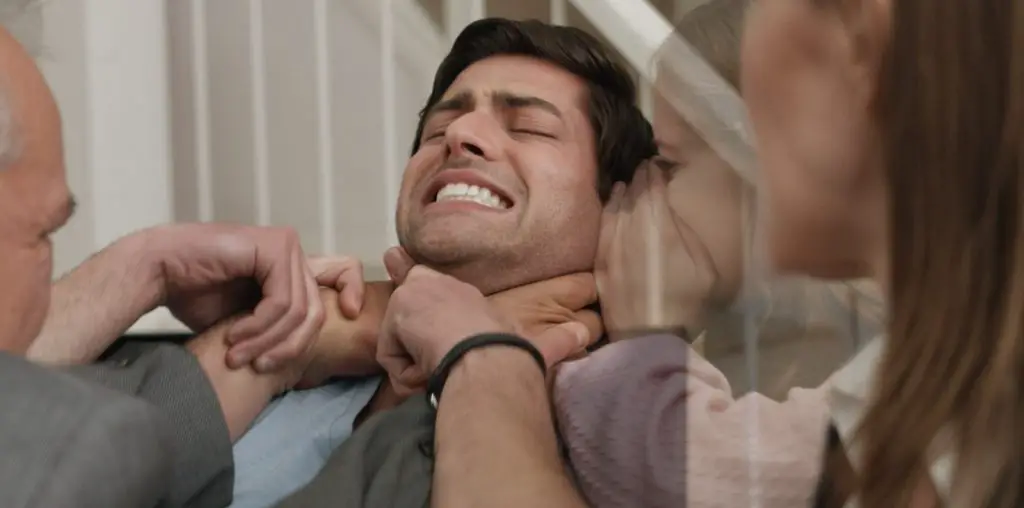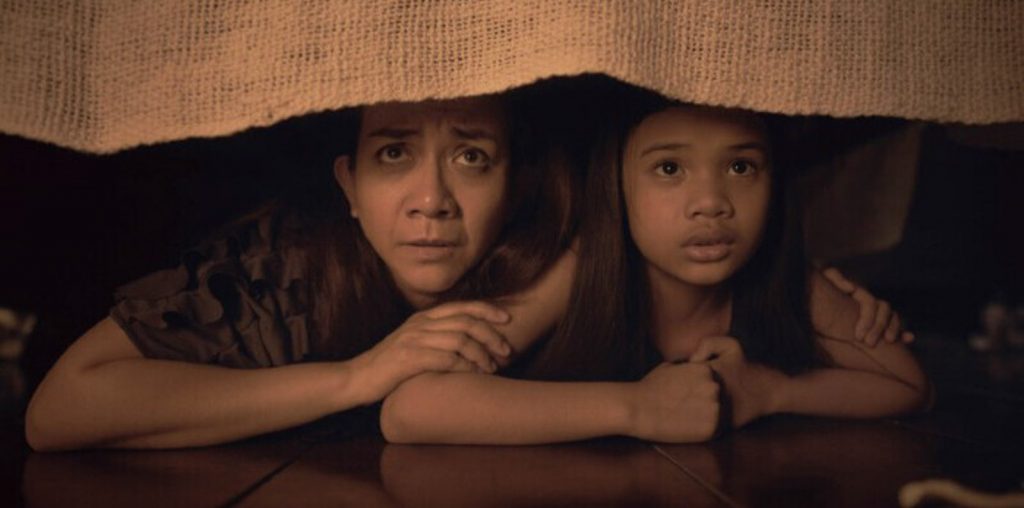
BOOTLEG FILES 230: “Shame of the Jungle” (1979 Belgian animated feature that riffs the Tarzan legend with adult humor).
LAST SEEN: We cannot confirm the last public screening of this title.
AMERICAN HOME VIDEO: In 1997, from a now-defunct label.
REASON FOR BOOTLEG STATUS: The film has been unavailable for American release for over a decade.
CHANCES OF SEEING A COMMERCIAL DVD RELEASE: A European DVD is available, but the possibilities of a U.S. offering appear to be slim.
I have a confession to make and I don’t give a flying f**k if anyone is offended by it: I love smutty comedies. Yes, bring out the cleavage, toss around the double entendres, run wild with inappropriately phallic symbolism, and let the fun begin.
And that brings us to “Shame of the Jungle,” a Belgian animated feature that takes smut to new heights – or depths, depending on how you look at it (I sort of look at it with wide eyes and a big grin). Sadly, too few Americans have ever seen this flick.
Created by the inventive cartoonist known as Picha, the original title of this film was “Tarzoon: Shame of the Jungle.” And if you see a possible parody of a certain white denizen of what the pre-P.C. world called the Dark Continent, you’ve swung on the right vine.
The film opens in the middle of Africa, which the narrator tells us is “where the web of human life is spun from a cheaper thread.” The jungle hero is Tarzoon, but don’t expect the Bowflex-worthy noble ape-man of years past. This Tarzoon is skinny, misanthropic, and painfully clumsy. And life in the trees is no picnic: Tarzoon’s pet chimp gets its giggles by peeking down his master’s loincloth while the luscious June (a.k.a. Mrs. Tarzoon) hasn’t enjoyed a satisfying sexual experience in many, many moons.
Ah, but June’s luck changes when she is kidnapped by a tribe of strange phallic creatures that bounce about the jungle. June isn’t particularly distressed to be abducted by these hopping gonads, but that changes when she discovers why she is being taken away. It seems June is the new captive of Queen Bazunga, a menopausal villain who desires world domination and a new hairdo (not necessarily in that order). The hairdo is where June comes in: Queen Bazunga is, shall we say, folliclely challenged and June’s scalp seems like the perfect transplant candidate.
But Tarzoon is not going to let his mate suffer that hairy fate. He swings through the jungle on well-placed vines (while his chimp swings off his penis) in search of June.
I don’t recall any film that packed so much smutty humor into every imaginable frame. James Kendrick, film editor at QNetwork (and one of the best reviewers out there) summed up the contents of “Shame of the Jungle” succinctly: “A moment rarely passes when some part of the screen is not trying to evoke visual references to human sex organs or copulation. The trees look conspicuously like certain parts of the male anatomy; a mountain range is drawn to look like a gynecologist’s view of a woman lying on her back; Bazunga’s plane is designed to look like a breast on one end and a vagina on the other; and even the entire continent of Africa is seen as a large, naked woman, with ‘the region known as bush country’ being in an obvious location.”
There is also one of the funniest sight gags ever put in a cartoon, in which the children’s book character Tintin makes an unexpected (perhaps unauthorized) appearance as a missionary trying to introduce the concept of Christianity to an uncomprehending African native. What happens? Well, you’ve got to see it to believe it.
Yeah, I know that sounds like a cop-out, but trust me on being reticent. I don’t want to give away too much because “Shame of the Jungle” is a riot of rude surprises, and too many spoilers will ruin the fun.
So if “Shame of the Jungle” is so funny, how come you’ve never seen it? Well, it appears the movie has been fighting for screen time ever since it was created.
“Shame of the Jungle” began its life as a 15-minute pilot. Picha brought this version to the 1974 Cannes Film Festival, and from that screening he was able to obtain funding to expand the production into a feature-length film. In 1976, however, the estate of Edgar Rice Burroughs, the author of the Tarzan books, filed a lawsuit against Picha and his French distributor, 20th Century Fox, claiming the movie plagiarized the original Burroughs stories. The French courts, realizing that Burroughs’ books didn’t contain sequences with bouncing penis creatures or chimpanzees swinging off someone’s ding-a-ling, dismissed the lawsuit.
While the European audiences had no trouble accepting the film’s bawdy humor, the climate was very different across the Atlantic. 20th Century Fox declined to release the movie in the U.S., and no major distributor was comfortable with the film’s adult contents. It wound up being acquired by
International Harmony, a small distributor that specialized in concert films such as “Rust Never Sleeps” and “Reggae Sunsplash.”
The MPAA gave the film an X rating, which was no surprise. But the problems began when International Harmony tried to arrange a platform release in 1978 – except for the San Francisco market, it was virtually impossible to get the movie booked in a mainstream venue.
In order to recoup its investment, International Harmony withdrew the film. The footage was edited down, with the most naughty matter removed, and a new English soundtrack was recorded, based on a script by “Saturday Night Live” writers Anne Beatts and Michael O’Donoghue. John Belushi, Bill Murray and Christopher Guest were among the actors who lent their voice performances to the revised version, while Johnny Weismuller Jr, the son of the most famous movie Tarzan, played the ape-man. The MPAA reviewed the new version and gave it an R rating, and the film was set for a new release in 1979.
Unfortunately, two new problems arose. First, the elder Johnny Weismuller made headlines by violently denouncing both the film and his son for demeaning his cinematic image. The publicity wasn’t pleasant, but at least that was just a case of angry words. The Burroughs estate, however, had angry words with lawyers attached to them: they filed a U.S. lawsuit demanding a new title instead of the original title “Tarzoon: Shame of the Jungle.” The Burroughs estate found a convenient loophole in the New York State law about the disillusion of a trademark, and the Burroughs camp claimed they had the trademark on Tarzan.
The film was already playing in limited release for about a month when the courts ruled against International Harmony, resulting in the removal of the word “Tarzoon” from the title. This may have been the first time that a movie was legally forced to change its title while it was in release.
And icing that cake were some fairly rotten reviews from critics who should’ve known better (and who had supported adult animation like “Fritz the Cat” and “Heavy Traffic” only a few years earlier). But, ultimately, the critics were just flies on a carcass – “Shame of the Jungle” died on the vine.
“Shame of the Jungle” came back to the U.S. in 1997 (albeit in the edited, second dubbed version) in a VHS video release from American Home Entertainment. But when that company went out of business, the film vanished again. To date, there has been no commercial DVD in the U.S., although bootlegs based on a European DVD release (with the uncut, original French-language version) and the earlier VHS release are circulating. Several clips are also available on YouTube.
If you love a lot of great dirty jokes, “Shame of the Jungle” is one flick that needs to be dug up. The real shame is that the film never received cult classic status – hopefully, devoted bootleg addicts with filthy minds can make that happen!
IMPORTANT NOTICE: The unauthorized duplication and distribution of copyright-protected material, either for crass commercial purposes or profit-free s***s and giggles, is not something that the entertainment industry appreciates. On occasion, law enforcement personnel boost their arrest quotas by collaring cheery cinephiles engaged in such activities. So if you are going to copy and distribute bootleg videos and DVDs, a word to the wise: don’t get caught. Oddly, the purchase and ownership of bootleg videos is perfectly legal. Go figure!

